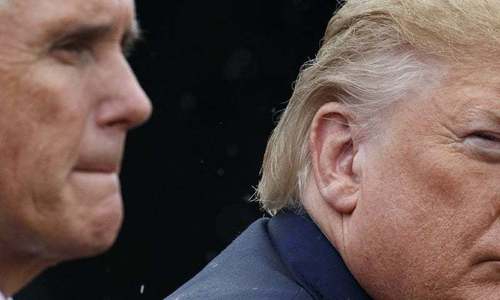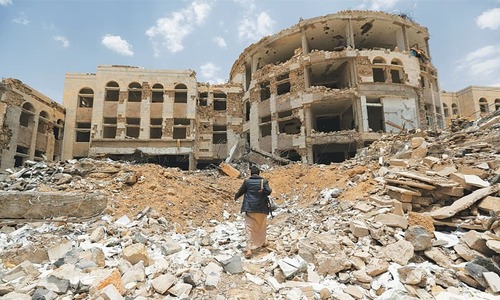LONDON: The UK government and military covered up credible evidence of war crimes by British soldiers against civilians in Afghanistan and Iraq, according to an investigation by the BBC and the Sunday Times.
Leaks from two government-ordered inquiries into the conduct of troops in the conflicts implicated troops in the killing of children and torture of civilians, the investigation found.
The allegations include murders by a soldier from the elite SAS unit, as well as deaths in custody, beatings, torture and sexual abuse of detainees by members of the Black Watch infantry unit.
Military detectives, who unearthed evidence of the alleged war crimes, said during the year-long investigation by the newspaper and the BBC’s Panorama programme that senior commanders hid it “for political reasons”.
“The Ministry of Defence (MoD) had no intention of prosecuting any soldier of whatever rank he was unless it was absolutely necessary, and they couldn’t wriggle their way out of it,” an investigator told the BBC.
The MoD said the allegations were “untrue” and that the decisions of prosecutors and investigators were “independent” and involved “external oversight and legal advice”.
The accusations emerged from two war crimes inquiries — the Iraq Historic Allegations Team (IHAT) and Operation Northmoor, which dealt with Afghanistan — which ended in 2017 without any prosecutions.
The government closed the investigations after a solicitor, Phil Shiner, who had recorded hundreds of allegations, was barred from practising law amid claims he had paid people in Iraq to find clients.
Amnesty International criticised the decision at the time and some former IHAT and Operation Northmoor investigators now allege Shiner’s actions were used as an excuse to close down the inquiries as they found wrongdoing at high levels.
The Sunday Times reported military detectives discovered allegations of falsified documents that were “serious enough to merit prosecutions of senior officers”.
It reported one of the SAS’s most senior commanders was referred to prosecutors for attempting to pervert the course of justice before the inquiries ended.
The newspaper said the revelations could result in a war crimes investigation at the International Criminal Court if Britain was deemed to have failed to hold its military to account.
Foreign Secretary Dominic Raab told the BBC on Sunday that despite the lack of any prosecutions, it had “got the right balance” in ensuring “spurious claims” were not pursued.
Published in Dawn, November 18th, 2019













































